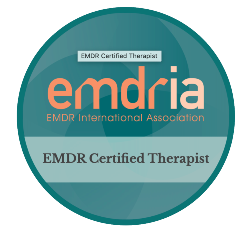How to Stop Nightmares
Many people struggle to determine how to stop nightmares because sleep is precious and nightmares can be debilitating, impacting work, relationships and physical health. You wake up confused, scared or sad, and to top it off, it can be hard to fall back asleep afterwards. What causes these dreaded sleep interruptions? The causes can be many things, but most often nightmares are the result of traumas (large or small), stress or anxiety.
Why do we have nightmares?
When we have experiences of any kind, neurons fire in the brain, and that group of neurons link together, creating a neuronal network that is the memory.
That network links into other networks that are similar in nature, or are related to adaptive experiences we have had in the past creating patterns for what we know to be true.
When we dream at night, our brain is doing its work of organizing the events of the day, and storing those experiences in our narrative. It is linking those neuronal networks into other experiences we have had, and other patterns we have for looking at the world. Sleep is imperative to help us come to adaptive resolutions about the events we experience day to day.
When an traumatic experience is highly charged, causing a surge of adrenaline and stress hormones, the network of neurons that fire may get stuck in the brain in a way that keeps it from linking into other adaptive networks. As a result, the brain perpetuates a cycle of trying to make sense of the experience. This creates flashbacks or nightmares. The brain cannot link that experience into the rest of the system due to the high charge of the material so it just keeps running through the experience over and over again. The network is locked out of patterns we know to be true in other situations.
As we all know, nightmares disrupt sleep. They wake us, make it very difficult to fall back asleep and often leave us wondering what to do -ruminating about the very thought of how to stop nightmares! When we don’t have enough time in the REM cycle of sleep we further compromise our brain’s ability to organize the traumatic experience in a way that is satisfactory. The experience never comes to an adaptive resolution.
How to stop nightmares:
EMDR therapy can put an end to nightmares. When using EMDR therapy, we are able to help those stuck networks to link up to other more adaptive networks so that flashbacks and nightmares can stop. EMDR uses back and forth eye movements that stimulate many areas in the brain, allowing those stuck memories to reach the networks in the brain that are storing adaptive perspectives.
Sometimes it is necessary for the therapist to spend time with you, building more adaptive networks before beginning the EMDR. This is so that the adaptive networks are substantial enough to help other stuck networks successfully link into them. Building those networks is often referred to as “building resources” and is a common part of the preparation for EMDR.
Some other practices that may help with this are starting or increasing a meditation practice, working on increasing mindfulness skills, exercising more regularly or doing breathing exercises. All of these activities actually increase those adaptive networks, create relaxation and increase the release of good hormones that reduce stress. All of this makes it much easier for the EMDR to work. EMDR has been research proven to effectively treat the symptoms of PTSD including the nightmares that are such a big part of it. Qualified EMDR therapists work with these symptoms on a regular basis and can help you start the road to healing and better sleep.





